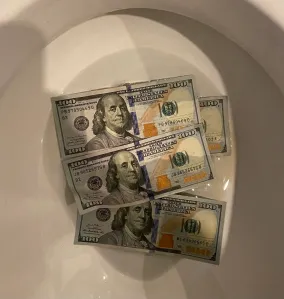The 2024 legislative session is over.
Thousands of bills were introduced, hundreds were passed into law.
Surprisingly, state law-makers took a meaningful step in the right direction on what I believe is the most important issue of our time.
During the final weeks, the legislature debated and passed SCR13, a Resolution stating Hawaiʻi’s official position on war and peace in Israel and Gaza – supporting a full and permanent ceasefire in the region.
SCR13 was introduced by State Senator Maile Shimabukuro and supported via well organized grass-roots citizen advocates. Regular folks in the community helped write the early drafts and then pushed hard, and kept pushing hard, and then pushed hard again, and again – until the Resolution was passed.
Our legislators took a rather bold step passing the Gaza ceasefire Resolution and we should thank them profusely for that.
We should say mahalo plenty, and we should ask them to now go a step further and declare their support for reducing the U.S. military footprint globally – starting here at home with closing down completely the U.S. Army Pōhakuloa Training Area on the Island of Hawaiʻi, and the lands at Kahuku, Kawailoa-Poamoho, and Mākua.
The same request must be made to our 4 member Congressional delegation.
Hawaiʻi can, should, and must say officially and out loud what most people are thinking in every corner of our world. “Thinking global and acting local” is more relevant now than ever before.
We must get off this dangerous path of mutual destruction. Our global conversation must shift to discussions of peace, diplomacy, mutual aid, and friendship.
If you’ve read this far, then it’s clear we share a common goal – to help make our community and our planet a better place.
So please join with me now in taking these next two steps:
First: Contact our 4 person Hawaiʻi Congressional delegation and ask them to support ending the military leases at Pōhakuloa, Kahuku, Kawailoa-Poamoho, and Mākua.
U.S. Senator Mazie Hirono 808-522-8970,
U.S. Senator Brian Schatz 808-523-2061
U.S. Rep. Ed Case (CD1 urban Oahu) 808-650-6688
U.S. Rep. Jill Tokuda (CD2 rural Oahu, neighbor-islands) 808-746-6220
Next: Identify your district State Representative and Senator and reach out to them with the same message. Here’s an easy tool if needed: https://www.capitol.hawaii.gov/fyl/
Remind them if necessary that there are already 14 different military bases in the islands, over 750 U.S. military bases in at least 80 countries around the world, and the U.S. spends more money on guns, bombs, missiles, ships, and soldiers, that any other country on the planet – more than China, Russia, India, Saudi Arabia, the U.K., Germany, France, South Korea, Japan, and Ukraine combined (according to globalaffairs.org).
Remind them also about the thousands of acres of once pristine Hawaiʻi lands now littered with unexploded ordinances and the discarded toys of war. Show them the recent headlines detailing the contamination of our drinking water, the travesty which defines Red Hill, and the long list of broken promises made by the U.S. Military.
Please take note of their response. Call them back a second, or third time if necessary to get one.
Every single person serving in public office will say they support affordable housing, education, and environmental protection. It’s only a rare few who will have the courage necessary to publicly support reducing the U.S. Military’s foot-print in our islands.
And those few are the ones we desperately need.
Gary Hooser
Written for and published first on May 18, 2024 in the Hawaii Filipino Chronicle
NOTE: Read, share, and take action by submitting your written testimony supporting the “No Action Alternative” for the Pōhakuloa Training Area (PTA) no later than June 7.
This is an issue relevant and critically important to all Hawaii and all islands.
Please take the time and say NO to lease extensions, NO to ongoing military training, NO land swaps, and YES to restoration and clean up of Pōhakuloa, and YES to reparations to Hawaiians for destroying their lands.
Comment via email to: ATLR-PTA-EIS@g70.design
Read the EIS and other Army info here:
https://home.army.mil/hawaii/ptaeis/project-home
While you are at it – Offer testimony to: info@PMRF-KPGO-EIS.com and attend the public scoping meetings regarding the Environmental Impact Statement (EIS) associated with the continuing the long-term U.S. NAVY PMRF use of 8,348 acres of State lands on Kauai.
Public scoping meetings are planned as follows:
June 4, 2024, from 5:00-8:00 p.m. HST at Kaua’i Veterans Center
June 5, 2024, from 5:00-8:00 p.m. HST at Kekaha Neighborhood Center
June 6, 2024, from 5:00-8:00 p.m. HST at Sheraton Coconut Beach Resort










